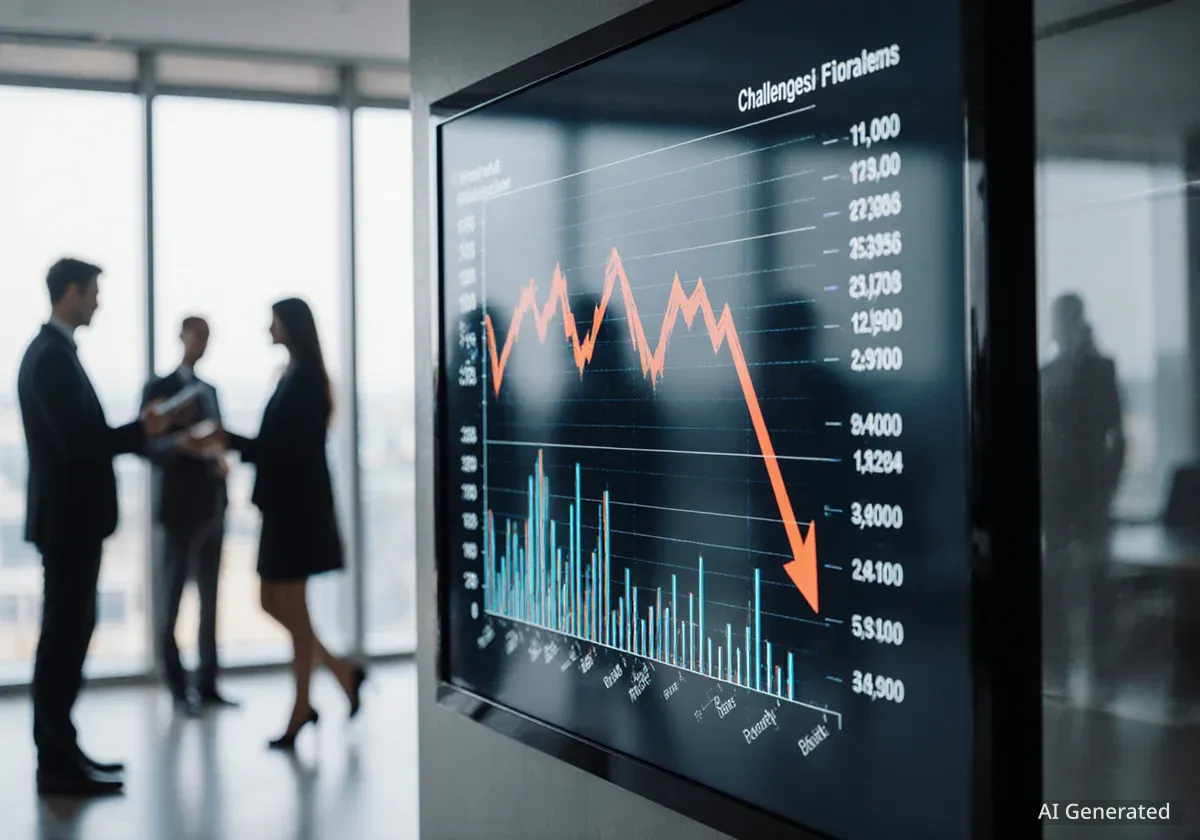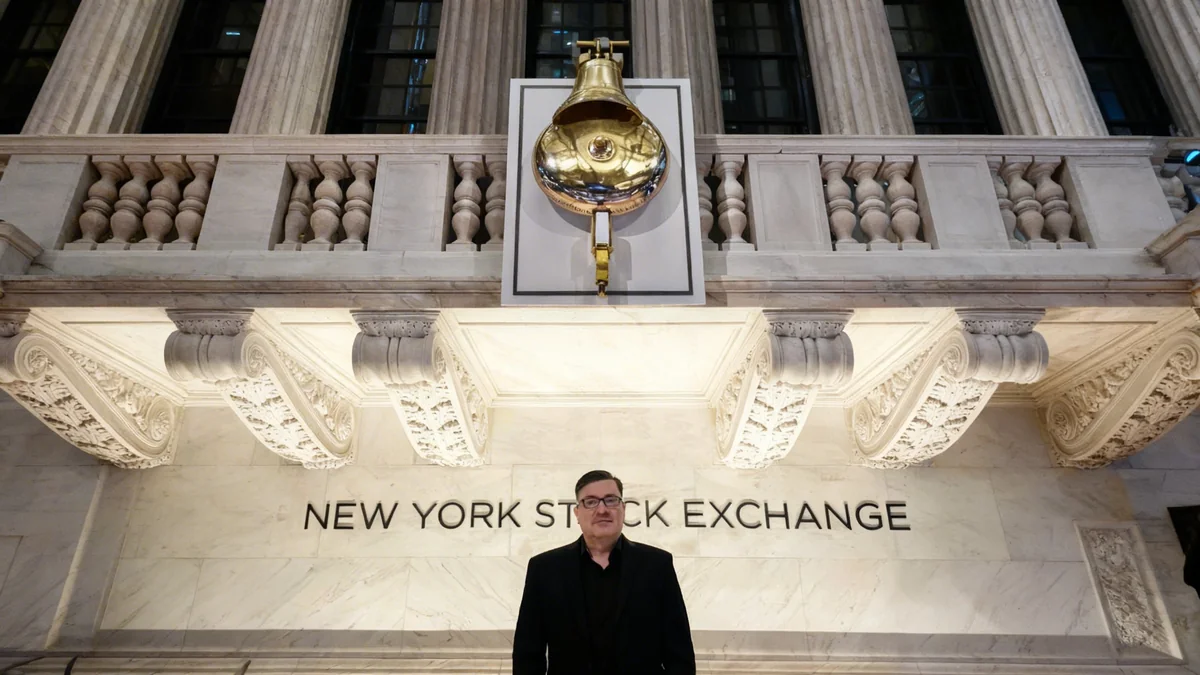Eric Trump, an executive at the Trump Organization and co-founder of the Bitcoin mining company American Bitcoin, has publicly endorsed Bitcoin as a premier financial hedge. His statements come as new reports raise questions about the Trump family's financial activities, particularly involving a cryptocurrency stablecoin and international investment firms.
Key Takeaways
- Eric Trump described Bitcoin as the "greatest hedge to real estate" and the "modern day gold" during a television appearance.
- He claims the Trump family's businesses turned to cryptocurrency after being "debanked" by traditional financial institutions.
- His comments follow a New York Times report detailing a $2 billion investment into the crypto exchange Binance by a UAE-based firm using a Trump-family-backed stablecoin.
- Trump has denied any wrongdoing, stating the family's business ventures are a matter of necessity, not political gain.
Bitcoin Endorsed as a Financial Safe Haven
During a September 16 appearance on CNBC's "Squawk Box," Eric Trump strongly promoted Bitcoin as a critical asset in today's economy. He argued that the digital currency serves a role similar to a traditional safe-haven asset.
"Bitcoin has become the modern day gold... It's probably the greatest hedge to real estate," Trump stated during the interview.
As a co-founder of American Bitcoin (Nasdaq: ABTC), Trump's advocacy aligns with his business interests. He further described Bitcoin as a "generational asset" that is increasingly attracting interest from major corporations and sovereign wealth funds.
He also issued a warning to established financial companies that are hesitant to adopt digital currencies. According to Trump, traditional institutions that fail to adapt to this financial evolution risk a "slow and painful death."
Background on American Bitcoin
American Bitcoin (ABTC) is a publicly traded company involved in mining Bitcoin. The process of Bitcoin mining involves using powerful computers to solve complex mathematical problems, which validates transactions on the network and creates new bitcoins. The firm's operations place it directly within the growing infrastructure of the digital asset industry.
Questions Arise from International Business Ties
Trump's promotion of cryptocurrency coincides with increased scrutiny of his family's business dealings. The interview host questioned him about potential conflicts of interest, referencing a detailed report published by The New York Times on September 15.
The report focused on a significant transaction involving MGX, an investment firm founded in the United Arab Emirates. In March, MGX announced it was investing $2 billion into Binance, a major cryptocurrency exchange.
According to the newspaper, this investment was facilitated using the USD1 stablecoin, a digital currency connected to World Financial Liberty, a firm backed by the Trump family.
Details of the Reported Transactions
The New York Times article highlighted two key events: the $2 billion investment by MGX into Binance via the Trump-linked stablecoin and a separate decision by the Trump administration in May to permit the UAE to purchase "hundreds of thousands of the world’s most advanced and scarce computer chips." Spokespersons for both the White House and World Liberty have denied any link between the two events.
Defense of Business Practices
Addressing Conflict of Interest Allegations
When confronted with these details, Eric Trump dismissed the idea of political profiteering. He framed the family's business ventures, including their involvement in cryptocurrency, as a direct result of being pushed out of the traditional banking system.
"These ventures reflect business necessity," Trump explained, arguing that the Trump Organization has incurred costs, not benefits, from its political connections. He claimed that the family's move into the crypto space was a response to being "debanked" by major U.S. banks.
"My father's the first guy who hasn't made money off of the presidency," he asserted.
The "Debanking" Claim
The argument that the Trump family and their businesses have been unfairly targeted by financial institutions has been a recurring theme. Proponents of this view suggest that political bias has led to banks refusing to provide services to the family and their associates. This situation, Trump argues, has forced them to seek alternative financial ecosystems like cryptocurrency.
This move highlights a broader trend where individuals and organizations feeling excluded from mainstream finance are exploring decentralized options. While crypto offers an alternative, it also comes with its own set of regulatory and transparency challenges, which are now coming into focus for the Trump family's ventures.
The Intersection of Politics and Cryptocurrency
The situation involving the Trump family, World Financial Liberty, and international partners underscores the growing connection between political figures and the digital asset industry. As cryptocurrencies become more integrated into the global economy, the financial activities of politically exposed persons are receiving greater attention from both regulators and the media.
The use of stablecoins like USD1 in large-scale international transactions is also a key area of interest. Stablecoins are designed to maintain a stable value by being pegged to a real-world asset, like the U.S. dollar. Regulators worldwide are currently working to establish clear rules for these digital assets to ensure financial stability and prevent illicit activities.
As this case develops, it will likely contribute to the ongoing debate about financial transparency, the role of cryptocurrency in modern business, and the boundaries between political influence and private enterprise.





